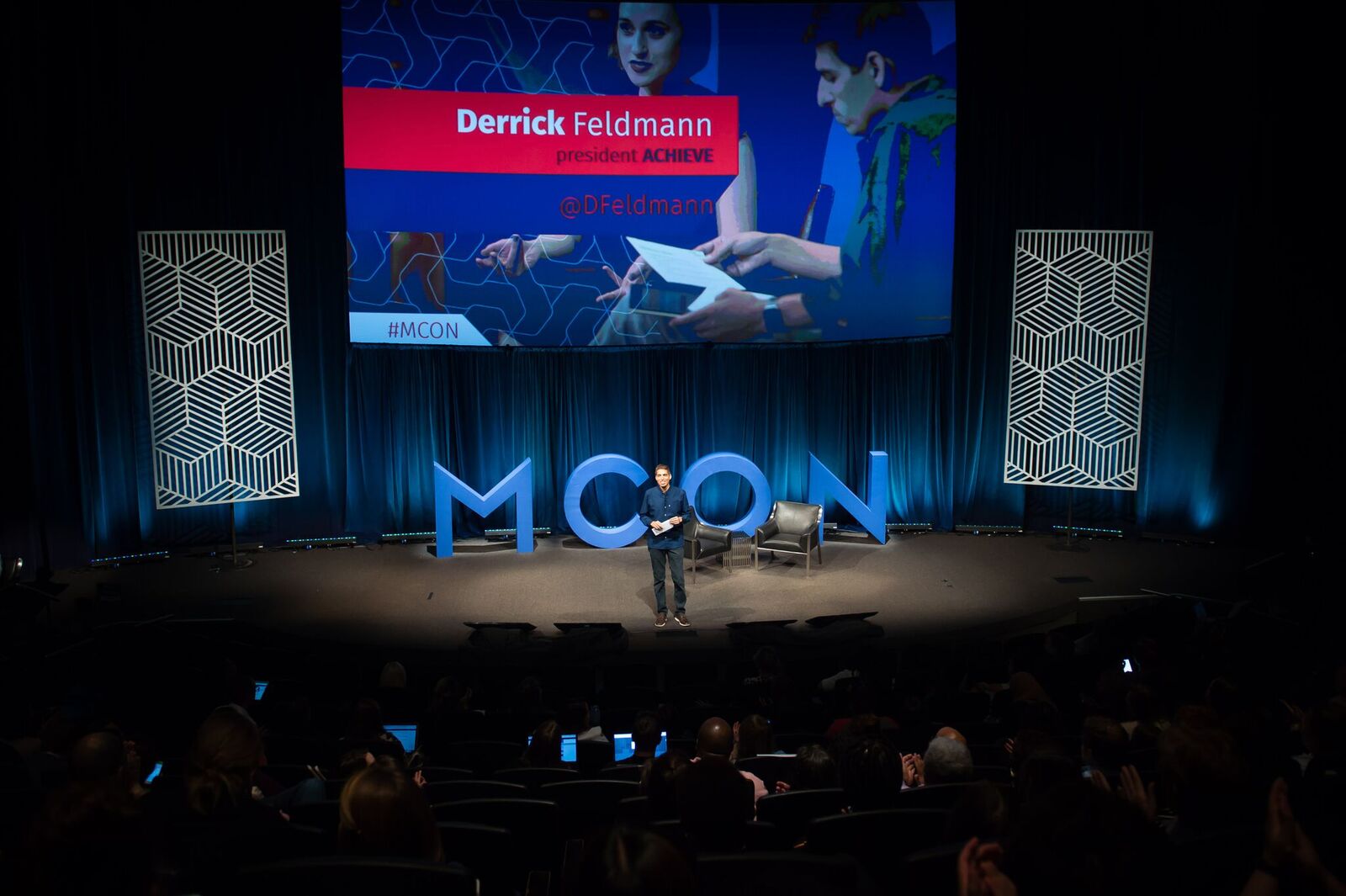
Lessons From MCON on Millennial Engagement and Membership
MCON, the millennial conference, showcased research and ideas from those working in the social impact sector, including how to engage millennials in small-step activism.
Last week, I attended the millennial conference—MCON 2017—in Washington, DC. And, although there wasn’t a single speaker on the stage who came from an association background (a missed opportunity if you ask me), many of the conversations gravitated around the same question that association leaders often ask: How do we engage millennials and get them to be a part of our cause?
Ultimately, this boils down to a membership challenge for nonprofits and associations alike. A big hurdle facing all cause-oriented organizations is the process to millennial activation. Luckily, millennials say they’re increasing and intensifying their cause-oriented engagement in 2017. That’s according to new research, which was released at MCON by Derrick Feldmann, lead researcher and creator of The Millennial Impact Report [PDF].
Feldmann detailed the first of a three-phase report being conducted this year. His phase-one findings came from interviews and focus groups with a small sample of millennials in U.S. cities, both big and small, and there are some important takeaways:
- Millennials use a distinct vernacular to speak about cause-engagement behavior and work to address or solve social issues.
- The “greater good” is a key force in cause engagement today, even when millennials don’t have a personal connection or benefit to the cause that they join.
- Cause engagement increased in the first quarter of 2017, meaning a lot has changed in the last year alone.
One of the biggest disruptors for millennial engagement was the election, Feldmann says.
“Before the election, there was a lot of more passive activism. Individuals who were not taking the first step to do something,” he says. “Now, there is a lot of interest around movement building and developing members. A lot of organizations are refocusing their strategy to mobilize more people.”
Small-Step Activism for Millennials
Before you even think about targeting a millennial for membership, Feldmann says it’s important to think about your membership strategy as a whole. That includes developing a process to rate and score member engagement, which can help you to focus on smaller subsets of membership.
Since millennials are likely very new to your association, Feldmann says you should engage them in what he calls “small-step activism.”
“We have to walk through their membership experience, which means starting out with small actions that will lead them to do more,” Feldmann says. “A lot of nonprofits and associations try to get young members way too involved. They ask them to do something hard, like join a young professionals group, which requires a lot of time and responsibility.”
A better fit for your millennial engagement strategy should be the five-minute member approach—actions or activism that not only get the member beyond a path of least resistance but also connect to the broader association community. Examples of small-step actions include micro-advocacy efforts and incentivizing online community participation.
Gamifying Good Actions
The good news is that millennials are self-starters, Feldmann says, and it usually only takes a small spark to get them self-organizing on behalf of your cause.
He points to grassroots and advocacy organizations like Women’s March or the ONE Campaign, which use the momentum of activism to propel volunteers forward. These organizations offer supporters the tools and incentives needed to self-organize. For membership teams, that’s where something like a toolkit for young members or a digital-badge program can come in handy to incentivize actions.
However, I was struck by another speaker at MCON: Simon Moss, who cofounded a movement called Global Citizen and developed a way to gamify good actions. His organization works mainly with millennials, who act as advocates on issues like climate change, education, public health, and women’s rights. In the last six years, millions of “global citizens” from around the world have taken to more than 10 million actions.
The movement now has widespread notoriety, but it started out with small-step activism—millennials who signed an online petition, called or emailed an elected representative, or tweeted to support a cause.
Simon devised a process to make it easier for millennials to engage digitally and then get rewarded for good actions. Global Citizen supporters who complete a series of small-step actions get a chance to win free tickets to music festivals and concerts held annually throughout the world. Last year’s Global Citizen Festival was in New York City and featured the likes of Rihanna, Usher, and Metallica.
While you probably can’t spring for Rihanna at your next annual meeting, your membership team might be able to develop a fun or creative program that incentivizes millennial members to make an effort to engage or act on behalf of your association. Keeping the ask small and offering a carrot and stick is key, Moss says. And it can go a long way toward turning millennials into highly engaged members.
What types of millennial engagement strategies do you use? Do you reward or incentivize members to act? Leave your comments and ideas in the thread below.
(Credit: Joy Asico / MCON)





Comments